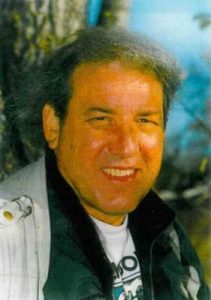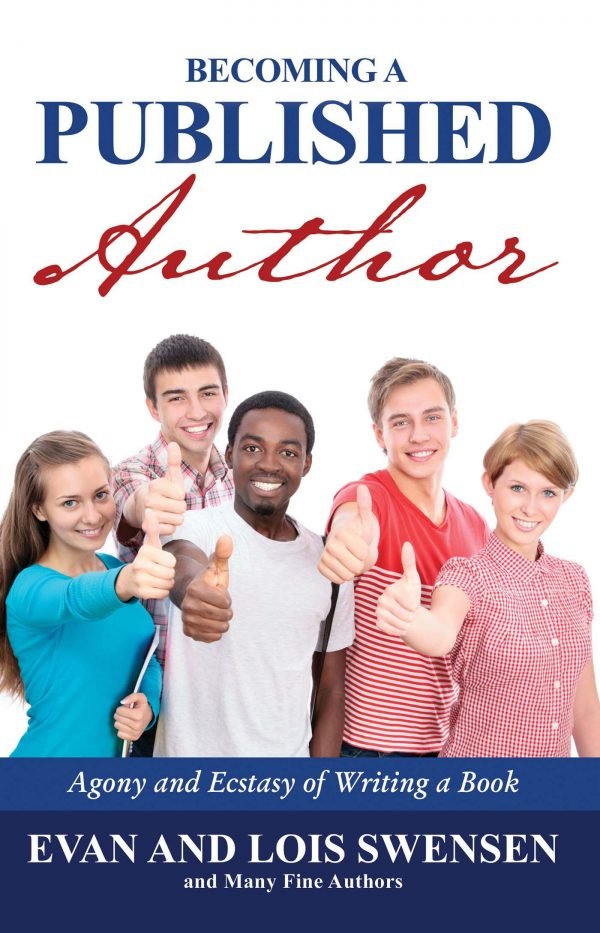Becoming A Published Author
Agony and Ecstasy of Writing a Book
By Evan and Lois Swensen
Chapter Twenty-Six
Writing and Publishing a Best Selling Book
Loren Pitchford

If I’ve heard this statement once, I’ve heard it a thousand times from various people, at different stages in their lives, who say…… “before I die, I’m going to write a book that gets published.” Some even take it a step further and say….. “and my book will become a best-seller, and I’ll make a pile of money.”
In reality, only a tiny fraction of people who make such statements ever publish anything; and out of those individuals, few succeed in actually publishing a book. Why does this happen? In my opinion, it happens because the odds for success are stacked against you whenever you undertake this type of literary endeavor. It takes a substantial amount of time and research, a unique idea; proficiency with personal writing skills; and a little bit of luck to achieve the ultimate goal of publishing a quality book. Even then, the chances remain high that the entire effort may all be in vain because nobody’s interested in what you have to say.
As a writer, if you are willing to take the risk and test the literary market, and then find that the general reading public is interested in what you have to say, the resultant feeling is the equivalent to winning the literary lottery…especially if your product is a book. Why? Because you will have impacted the literary world, and your book will become a legacy in time about who you are and what you stand for. That’s what happened with my first non-fiction Alaska fishing book, Real Alaskan Fish Tales. It was a major personal undertaking that took years to complete, but ultimately had a great payoff. Consequently, I’d like to offer a few “words of wisdom” about how I finally arrived at the “finish line” of my long literary journey, and a few of the problems and obstacles that occurred along the way. If you are an aspiring writer, I am hopeful this advice will be of benefit, because I learned most of my lessons from actual experiences over a considerable period.
I believe that everybody should have a few passions in life. Passions are things you enjoy doing, and they never seem to diminish over time. They usually pique your interest and encourage you to become more proficient in a particular craft. As years pass, such passions seem to grow, and so does your proficiency. I have many passions I have pursued most of my life. One is fishing, and another is writing. I’ve spent 50 years perfecting my fishing skills and 30 years writing about my fishing experiences. I never get tired of doing either of these passions because I’ve always enjoyed them.
If you believe you have a passion for writing, you need to answer a few basic questions about your chosen craft. Do I enjoy doing it? Will I spend the necessary time and effort doing it? And, will I probably want to do it forever? If the answer to any of the above is “No,” then writing for you is not a passion, it is more like a job. Nobody likes a job because jobs have restrictions, rules, and timetables. Passions don’t.
If you passed the first test on being a writer, here’s the second test. Do I have the necessary skills and mindset to do the job? Many established authors have big egos because they believe in themselves and their writing abilities. They also think that what they have to say will readily be accepted by others. The only way to find out if this premise is true is to write something and see if a publisher will accept it.
I recommend starting small (i.e., articles) before going large (i.e., a book). It takes less time and effort, and hopefully gives you an expedited answer to the question. Publishers of both magazines and books are in the literary business to make money. They want to market articles and books that will sell. You are usually in if you have name recognition and credentials from past publications. If not, you will be out and probably receive rejection notices or nothing at all.
Remember, if you believe in yourself, you can win, but you will never win unless you try. I was fortunate in my literary endeavors. Over a twenty-year timeframe, I submitted more than 40 feature articles, with accompanying photos and illustrations, to various outdoor magazine publishers in Alaska and the Lower 48. All of my submissions were accepted and published. I never got rich from these publications, even though a few of my photos appeared on magazine covers and many articles were featured. Still, I did establish a reading audience and writer’s credentials. I believe such credentials and reading audience are necessary if you will write and publish a book. The time and effort required for a book are substantial, and so are the corresponding financial requirements to develop a quality product. No publishing house in today’s economic environment will risk their capital on you or your book unless they firmly believe that your work will create a potential profit for them. You must also understand that you are competing against an army of other authors and writers who want to accomplish the same goal you do. Consequently, I believe it is crucial to create your own writer’s niche, making your work different from all the rest. My niche was Alaska fishing stories that contained adventure, close calls, how-to information, and humor. I also created my own captioned illustrations to supplement the text.
Many authors hit a stone wall with established book publishers after making numerous manuscript submissions and receiving continual rejections. As a result, they end up with a vanity press approach which means self-publishing. This can be tricky terrain in any writer’s literary journey because you are now putting your own money behind your words and ideas. Therefore, you have to ask the question …. “Do I have enough capital to cover the costs of editing, proofing, printing, distribution, marketing, and promotion?” Contractor help is available, but there’s always a price tag for all of their services.
When it comes time to present your finished product to the public, I may be old-fashioned, but I believe that a book should have a hardcover and be something that an individual holds in their hands and turns pages while it’s being read. In modern technology, many people would disagree with that belief and feel that the only way to purchase a book is through the Internet, using special applications to access the text. From a marketing standpoint, you can reach a much larger reading audience through the Internet since most people rely on computers for communications and entertainment. As an author, you need to decide what works best for you.
Once you have published a book, whether in hard copy or disc form, the last literary hurdle that remains is public acceptance of your finished product. This is where the rubber hits the road. If you correctly calculated all the risks, the rewards should be forthcoming in book sales after your finished product hits the market. If that happens, you’ve won the literary lottery! You will be recognized as an established author and soon find that the rewards and opportunities keep coming. For someone with a passion for writing, it doesn’t get any better than that.


